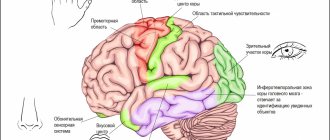Even 20-30 years ago, parents did not have to deal with the problem of gadget addiction in children. There were simply no gadgets! Modern life is like this: we rarely leave home without a smartphone, every 2nd child aged 5–7 years already has their own phone, and among younger schoolchildren, 90% have gadgets. What can we say, the main phobia of our time has become nomophobia - this is the fear of being left without a smartphone. To prevent your mobile device from turning from a helper into an enemy, it is important to be on your guard.
Generation Z and gadgets
Children and teenagers born after 2000 are called Generation Z or iGen (Internet Generation). These are new-thinking people born in the era of the Internet and sophisticated gadgets. They receive information, shop, study and work, and communicate via the Internet. It’s strange and incomprehensible to them how their mothers and grandmothers lived (or even survived) without the Internet. In this regard, modern children and adolescents have several distinctive features:
- They are not ready to concentrate on anything for a long time. The average time a teenager spends attention on any object is 8 seconds.
- They are not willing to read texts, especially long ones, but prefer videos and pictures.
- Their real communication is supplemented by virtual communication, they are almost never alone and are afraid of falling out of society.
- The assessment of others is important to them.
- They spend more time at home.
- They easily and quickly find various information via the Internet.
Generation Z was formed in the era of gadgets and online broadcasts; they do not know life without smartphones. Gadget addiction is a direct consequence of their lifestyle. How often do you notice children just reading books or chatting with each other on a bench?
OPINION
“It was the same with hamburgers.”
— According to researchers, a particularly strong dependence is observed in children of older adolescence, because they grew up at the peak of the development of new technologies, when the first gadgets were just appearing. A similar consumer culture developed in the nineties with the advent of mass products - Coca-Cola, hamburgers and the like. At first, people endlessly consumed everything new and only later began to think about how useful it was. It’s the same with gadgets and new technologies,” notes Anastasia Ekushevskaya, psychologist, academic director of Skysmart. — But younger children, according to research data, today consume content and use gadgets much better: they sit in front of the screen for a short time and switch more easily to other things. With the new generation, the culture of using gadgets appears and forms itself, and this is a new evolutionary round: after active consumption, trying to get enough of what the previous generation did not have, it returns to normal. Therefore, the key task of modern parents is not to try to determine whether gadgets are good or bad, but to create a culture of using them, set a personal example, introduce rules, talk about interesting applications, games, educational platforms, electronic textbooks.
Gadget addiction in children: main dangers
The life of a modern child, and especially a teenager, is difficult to imagine without gadgets. But it is important to prevent children from developing gadget addiction. It is dangerous for both the physical and mental health of the child.
Health Hazard
Gadgets have a negative impact on the body, in particular on the brain. Their frequent use leads to unfocused attention. The child is unable to concentrate on anything for a long time, he gets distracted and loses interest.
Memory deteriorates as it is trained less often. Thanks to gadgets, we lose the need to retain information in our heads. Why memorize if you can quickly find the answer on the Internet?
The use of gadgets has a bad effect on the quality of sleep and causes insomnia. Almost all teenagers sleep with phones under their pillows. We check our phones right before going to bed and immediately after waking up. At the same time, our brain perceives the light from the phone as a continuation of daylight hours, which has a bad effect on the production of melatonin (sleep hormone) and disrupts circadian rhythms.
Smartphones worsen vision. When the eye focuses on an object, the number of blinks decreases. This leads to dry cornea. Staring at a smartphone screen greatly tires our eyes.
Another indirect danger is low activity. The more time a child spends on the phone, the less often he moves. In combination with poor nutrition, low physical activity can cause obesity.
Due to incorrect body position when using a smartphone, a child may experience pain in the cervical spine.
Psychological dangers
Psychologists identify several socio-psychological dangers of gadgets for children:
- Loss of interest in the world around us: news feeds are full of bright pictures and videos, against which real life looks boring and insipid.
- Decreased interest in real communication with peers.
- Unwanted contacts: parents cannot always track which sites their child visits and what content he sees.
To ensure that a smartphone and the Internet do not pose a threat to a child, parents should tell him or her about online safety rules and the peculiarities of communication on social networks and forums. This way, adults will be able to protect the child from cyberbullying, dangerous groups and aggressive content.
WHY PROMISES ARE NOT KEEPED AND PLANS FAILURE
The frontal lobes of the brain are responsible for executive functions, that is, our ability to act according to rules, instructions, plan and follow a plan. Thanks to them, other teenagers are able to concentrate and switch from one activity to another: now I’ll surf on Tik Tok, and then I’ll do my homework, as I promised my mom. This is also the ability to use accumulated information (working memory): read - remember - tell. Self-criticism and self-control, the ability to see and correct one’s mistakes. Inhibit impulses: I want to play on the phone, but not now. All these functions are not transmitted to us genetically, but develop from birth and mature by the age of 19. When something goes wrong, we talk about attention deficit hyperactivity disorder (ADHD).
What if there are disadvantages here? Contact a neurologist or neuropsychologist for correction. And at home there are more strategy games, with clear rules, where you need to plan, count several steps ahead, and remember. The well-known game “The Sea is Worried Once” helps control emotions and impulses.
If you know the physiological characteristics of a child, you can help him avoid dangerous temptations and not get stuck.
Photo: Shutterstock
The diencephalic structures of the brain (where the hypothalamus is located) are the main ones for addictions. People who are addicted to alcohol, smoking, or drugs usually have problems with this particular part of the brain. “Breakages” provoke vegetative-vascular dystonia (VSD), stress, anxiety... If there is a scandal at home, such a child “hides” in the phone, because it is calm there. Over time, such “pranks” of the brain can lead to panic attacks, obsessive thoughts (obsessive-compulsive disorder), bipolar disorder, eating disorders and other serious problems.
What should I do to lay the straws? From childhood, lay the foundations of a healthy lifestyle: routine, including sleep patterns, sports, proper nutrition, walks.
The scale of the problem is very large
The problem that we will talk about today is very relevant, as many parents, teachers, educators, and psychologists admit. I’ll be honest: I underestimated the scale of its consequences. To understand how to overcome it, you need to figure out: is what is happening to our children already an addiction or is it still just a bad habit? How deeply ingrained is it? Is there such a problem at all, what is its scale and what does it threaten us with?
As for the threat posed by the digital environment to a child: it should be understood that it lies not so much in the content of what he watches, but in how he acquires knowledge and skills, how he develops. A child comes into the world with only a brain template, which has yet to develop into a real brain, form a way of thinking, social criteria, skills, and personality. Modern neuropsychology represents our brain as a set of cells, which in the future must form certain neural connections. There are more of these cells than there are stars in the universe, and each one can establish thousands of connections that then remain for life. The brain is the universe, and the very process of studying it looks like something incomprehensible, because the brain studies itself.
Method 3: Reorganize Application Storage
Why are smartphones and some applications on them addictive? Thanks to the work of designers and marketers. Bright app icons and red notification icons are the visual triggers that keep us swiping again and again. Just like the colorful M&M's wrappers in Google's kitchen experiment. That's the essence of it.
Anyone who works at Google can come into the kitchen and snack on fruit and candy for free. But one day management discovered: of all the products, employees prefer M&M's. Then the scientific team set a goal to reduce the number of harmful snacks. She studied people's behavior and found that brightly colored candy wrappers trigger an unconscious desire to eat them. And also that M&M's are too easy to grab: employees take them and eat them without really thinking about this action.
To remedy the situation, scientists placed candy in opaque white ceramic jars with a lid, and fruits and other healthy foods in clear glass containers. In addition, they replaced the multi-colored packaging with white cards indicating the contents. As a result, consumption of M&M's decreased: in the New York office alone, over the course of seven weeks, the average employee ate nine packs less than before the experiment. Please note: the candies were not removed, the storage was simply reorganized. The same thing should be done with applications on the home screen.
Declutter apps using Marie Kondo's method
Start by putting things in order - and knowledge about regular cleaning methods will come in handy. Thus, cult expert Marie Kondo advises the ideal way to get rid of unnecessary things: simply throw away clothes, books and souvenirs that do not spark joy. If you take Kondo's approach into the digital space, cleaning your phone becomes as simple as possible: all the apps that don't make you happy are actually unnecessary and go in the trash. If an app is questionable, uninstall it anyway. If you miss it or find it necessary, download it again.
Collect applications in a folder and hide them
After you have removed unnecessary applications, you need to make sure that the remaining ones do not encourage mindless online surfing. Multi-colored app icons like Facebook’s blue “F” or Instagram’s pink camera are alluring. To regain control over attention and behavior, you need to hide them.
- Collect all the applications that are left after decluttering into one folder in random order.
- Place bright icons on the second page of the folder. Then their color is not visible and the eye catches applications with neutral icons.
- Move the folder to the second screen or third. This will be the digital equivalent of the opaque jars with lids from Google's experiment. This way you won't see a folder full of flashy icons when you unlock your phone, and you'll avoid any incentive to open an app you didn't intend to use in the first place.
Open apps through search
After you have hidden applications, train yourself to open them through search. Typing will automatically reduce unconscious phone use: it is almost impossible to type on a keyboard without thinking. To open apps on iPhone, simply swipe down on the screen and type the first few characters of the name into the search.
Not looking at app icons and typing their names feels weird at first. But this will give you enough time to ask yourself every time you use your phone: “Do I really want to do this?” And no, it won’t slow you down. iPhone remembers the text you type. Very soon it will be enough to type only “F” or “Fa” to open Facebook, instead of the whole “Facebook”.
Possible consequences
Disturbed sleep patterns are a possible consequence of mobile addiction
The child is isolated from the outside world, which can lead to the development of a number of health and mental disorders.
- Obesity. The child leads a sedentary lifestyle instead of actively moving, for example, playing football with children. Obesity, in turn, can lead to cardiovascular problems, arthritis and diabetes.
- Aggressiveness. Children who often play violent games on their phones begin to behave aggressively towards their peers and are impolite towards teachers.
- Sleep disturbances. Children can exchange SMS messages under the covers even at night. Lack of sleep leads to impaired concentration, memory loss, and decreased performance in school.
- Problems in relationships with peers. The teenager begins to move away from family and relatives, friends, and cannot make new acquaintances.
In addition, it is also necessary to take into account the influence of electromagnetic radiation:
- memory problems;
- deterioration of immunity;
- irritability;
- headache;
- blurred vision;
- pressure changes;
- sleep disturbance.
Literature:
- Get off your phone! : how to build a healthy relationship with your smartphone / Katherine Price; translation from English by Gleb Trzhemetsky. - Moscow: Mann, Ivanov and Ferber, 2021. - 229 p..
- Phone addiction or How to return to the real world / Personality in a changing world: health, adaptation, development / 2017/li>
- The influence of dependence on information technology on the socialization of the individual / Alexandra Vladimirovna Weisburg / Journal “Bulletin of Economics, Law and Sociology”, 2021
Need some advice?
OR CALL A DOCTOR
CALL!
+7
There is no panacea
Usually it is not possible to fix a problem because there is not enough motivation. That’s why at the very beginning I suggested that you familiarize yourself with the works of neuropsychologists on the problem of digital addiction: they are very motivating and sobering. You immediately understand that you need to change something in your life and the lives of your children.
Parents need to be vigilant. There is no panacea when it comes to the Internet and smartphones. Unfortunately, even with a very responsible approach, children find inappropriate content or it finds them - there are now many opportunities to bypass filters and restrictions. Banning phones and computers indiscriminately is also not a solution: children usually bypass such prohibitions, so you need to find your own way, your own rules.
In conclusion, I’ll tell you about an experiment conducted by scientists from one research institute. Three groups of students were given the same tasks, but in the first all the subjects were without phones, in the second the young people had phones in their bags, in the third they were on their desks. The best results were shown by the group without phones, from which scientists concluded: in the absence of these devices, our brain begins to work more actively and mobilizes its resources, which it usually does not use. We will also try to give children the opportunity to use their potential, the main thing is to decide to do this.
Archpriest Vitaly Vorona
Causes
Isolation from the outside world
If you believe the statistics, every seventh person in a country with a developed civilization is dependent on mobile phones. For many people, forgetting your cell phone at home is a disaster. A lot of stress is caused by a dead phone or lack of communication.
Let's look at what the causes of mobile addiction in adolescence are.
- Isolation from the outside world, fear of helplessness. Thanks to a mobile phone, a person has contact with friends and family. It is possible to call for help if necessary.
- Availability of a calendar, clock, calculator and other options in the phone.
- The influence of advertising. The child's psyche is very susceptible to what is shown on TV. They strive to get everything they see in advertising.
- Fear of loneliness. A mobile phone allows you to communicate with many people by calling or sending messages, and find out news from their lives.
- The illusion of impunity and sociality. With smartphones you can surf forums, communicate on social networks, despite your complexes and problems, and find many friends.
In my son's class, probably almost all the children have mobile addiction. They don't part with their phones even during class. Instead of listening to the teacher, they play or sit on social networks.
How to overcome
Teach your teenager to turn off their cell phone during outdoor activities
- Do not allow your teenager to carry a phone with him when he moves around the apartment.
- Do not allow your child to take a mobile phone with him when going to bed, put it under the pillow.
- Let the teenager learn all the news through personal communication with friends; he uses his mobile phone only in rare cases, when he needs to find out something urgent, for example, to ask what lessons were assigned.
- During active recreation, such as playing with a ball, you need to turn off your phone to allow you to relax.
- Go on trips with your child more often to places where there is no mobile connection.
- If it is vital for a teenager to be constantly connected, it is important that he takes breaks for active recreation.
Do you need a psychologist?
I believe that a psychologist alone will not solve anything - except the issue of his earnings. If you have already repented, introduced rules, are trying with all your might to fight this addiction yourself, and your children are with you, and nothing works - of course, you need to involve an experienced confessor and psychologists. There will be spiritual help from prayer, fasting, and abstinence, because these are means of combating all passions; in this asceticism we learn to overcome them. As for psychological help, many experts say: there should be a time gap between “I want”, “give” and “received”. The larger it is, the less likely it is that the child will get hooked on something bad.
Before turning to a psychologist, you should try to solve the problems yourself. A good psychologist understands: in order to solve a local problem, you must first solve the problem of the environment. We'll get there anyway. So, no matter how you look at it, you have to start with yourself.










